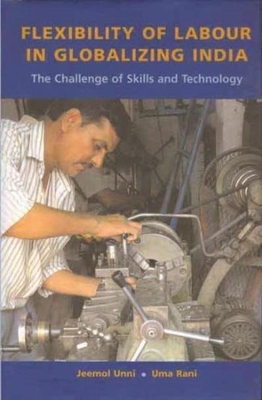Globalization is primarily about the steady growth of economic liberalization around the world, and the drift to a market society in which privatization and commercialization of social policies have followed the process in economic sectors. One of the apparent consequences is a remarkable growth of various forms of economic inequality and insecurity. This book considers a wide range of economic explanations for the increasing wage gap in a globalizing India, with a focus on how workers and small enterprises in India fare when faced with the processes of globalization and liberalization. While most discussions on globalization stop with the impact of the opening up of the economy on large enterprises and workers in them, here the authors try to tell the story of what happens to workers and enterprises at the bottom of the pyramid. Key questions raised about the experience of Indian development since the onset of economic reforms in 1991 include the limitation of the notion of the informal sector: while there has been a growth in labor informalization and production in small-scale units, much of the informal labor is in or around large-scale producers.
As a result, India has actually created a highly flexible labor system. Second, the issue of outsourcing of jobs which has excited comment around the world: while there is an international re-division of labor taking place, the general equilibrium dynamics of this process defy easy description. Third, the limitations in the conventional analysis of the links between educational skills and economic performance: while the commercialization of education is a matter of serious concern, it is not necessarily correct to presume that formal schooling is an adequate proxy for the possession of skills in workers.
- ISBN10 8189487396
- ISBN13 9788189487393
- Publish Date December 2008
- Publish Status Active
- Publish Country IN
- Publisher Tulika Print Communication Services
- Imprint Tulika
- Format Hardcover
- Pages 240
- Language English
